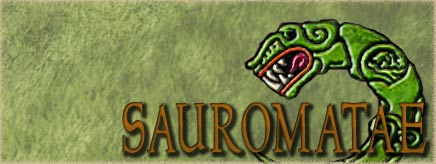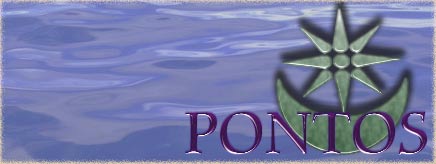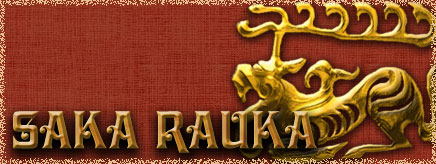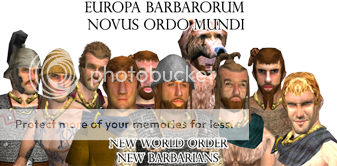Introduction
Whether this is too late or not, it doesn't matter much, I wanted to propose and discuss this tribe, it is sometimes mentioned as "oh yeah, that thing Teuta had going on" and I never liked that :P

Originally Posted by
Polybios II,12.6
[the Romans] having by the communication of this treaty, delivered the Greeks from no inconsiderable dread; for the Illyrians were not then the enemies of this people or that, but the common enemies of all.
Illyrians in general were relegated to a lasting infamy as "savages" at the periphery of the civilized world. Often left in footnotes, mentioned only to express contempt or alltogether ignored. Such negative legacy in the past was merely replaced by the Vandali, leaving the Illyrians to be gradually forgotten. While recently, they were either seen negatively for clearly not being celtic, dacian, thracian, greek or macedonian, somewhat standing in a grey limbo, with an unknown language. Then used to further a nationalistic agenda. Today they are open to a rediscovery, albeit limited to "external" sources and what archaeology can unveil.
Why an illyrian faction?
As noted before, Illyrioi aren't part of any greater cultural group, but an autonomous class of unknown origin (whether autochthonous or not), tracing back to the Bronze Age. Therefore making an ideal candidate, representing yet another ethnos in EBII. Bringing with them a maritime tradition for the "barbarian culture", which is a bit of an interesting novelty. Philippos V hired their shipmakers in 217 BC to build his new fleet for example.
Their language barely survived (placenames and personal names), but their influence echoed throughout history, especially in naval nomenclature and still today in the name of the Adriatic Sea (adur: mass of water, sea).
Ardiaioi

Originally Posted by
Polybios II,2.2
the most powerful force, both by land and sea, of any of the kings who had reigned in Illyria before him [Agron, king of the Ardiaei]
The tribal kings of the Ardiaioi emerged in the 3rd century BC as rulers of the southern adriatic coast, coming from a rapid urbanization process during the late fourth century. Theirs was a dynastic state of supra-tribal entity, with the royal tribe of the Ardiaioi at its top, headed by the basileos of the tribe. The helots recorded by Theopompos were dependent communities, who worked the fields belonging to the Polydynastes (aristocratic proprietors) and participated in the expeditions.
Unlike common illyrian practice, they boasted a land army to follow up and profit from the victories gained by the navy.
The latter was composed by the Lembos, single bank carrying 50 marines; the Libyrnis, warship similar to the Pentekontor; the Pristis beaked vessel, possibly indicating that the Ardiaei, by the time of Polybios, adopted ramming tactics.
The innovative ardiaeian land army was composed by small fighting units, under Polydynastes, capable of fast manouvering and heavy charges.

Originally Posted by
Polybios II,3
One hundred lembi with 500 men on board sailed up to land at Medion. Dropping anchor at daybreak, they disembarked speedily and in secret. ... They [the Aetolians] drew up the greater part of their hoplites and cavalry in front of their own lines on the level ground, and with a portion of their cavalry and their light infantry they hastened to occupy some rising ground in front of their camp, which nature had made easily defensible. A single charge, however, of the Illyrians, whose numbers and close orders gave them irresistible weight, served to dislodge the light-armed troops, and forced the cavarly who were on the ground with them to retire to the hoplites. But the Illyrians, being on higher ground, and charging down from it upon the Aetolian troops formed up on the plain, routed them without difficulty.
By the mid 3rd century BC, the Ardiaei were a major power, entering the grand stage of hellenic politics. Securing territory in order to control key locations, ensuring thalassocracy.

Originally Posted by
Appianos "Illyrike" VII
In turn he [Agron] captured part of Epirus and also Corcyra, Epidamnus and Pharos in succession, and established garrisons in them
In 232 or 231 BC, now independent Acarnania, asked for protection to Demetrios II against the Aitoloi, who in turn hired the Ardiaei for the task.
The success (quoted above from Polybios), ignited their spirits and a mass attack was launched against Elis and Messenia. The returning fleet called for supplies at Phoenike (the capital of the Epirote League), which the gallic garrison handed over to Teuta's men (Agron died of pleurisy earlier that year). The Chaones were assembling a relieving force, while the Ardiaei were ready to give battle near Halicranum, joining forces with Skerdilaidas, commander of the land army, who marched through the pass at Antigoneia.
Operations ceased when news of some illyrian subjects going over to the Dardani forced Teuta to recall the army. A truce was agreed, Phoenike, freeborn prisoners ransomed, while slaves and loot were taken to the ardiaeian ships. The Apeirotai then sent envoys to Teuta promising cooperation and hostility towards the hellenic leagues. Thus the adriatic commerce shifted towards Illyria, eventually forcing the Romani to cross the Adriatic Sea for the first time.
Fortresses and Economy
The power of the Ardiaioi centered around the Lake of Shkodër: Lissos, Skodra, Meteon, Bouthoe, Ulchinion and Rhizon.
In these oppida there were both autonomous bronze and royal bronze and silver minting.
Agriculture was less important than livestock, hunting and fishing, but organic remains attest for bread, wheat, oats (used for brewing sabaia), millet, peas, beans and lentils. The extent of viniculture remains uncertain: ancient writers implying the Illyrians had not learned to cultivate the vine, but grape seeds have been found in Ripač and Donja Dolina. Although these were riverside settlements in broader valleys, a much different environment than the ardiaeian one.
The medicinal flora was famous and several writers refer to the Iris Illyrica, which could heal boils, relieve headaches and, mixed with honey, used to induce abortion. It was also used in perfume recipes and, its extract, as an antiperspirant. The yellow gentian, was said to be named after Gentios (the last ardiaeian king), the first to recognize its qualities according to Plinius (Naturalis Historia XXV,71).
The Illyrians appeared to the greek world as heavy drinkers, hosting bouts where both men and women participated. The Greeks actually learned a recipie for mead from the Taulantioi, which was still consumed in the 4th century AD.
Although there is evidence for glass manufacture among the Iapodes, metal-working was the foremost industry practised by Illyrians. Smelting-furnaces, stone and clay casting moulds and ingots are present in the oppida, reflecting the existence of itinerant craftsmen.
Romans usually viewed mining and quarrying as activities proper of forced labour, these remained traditional skills in Illyria. Dalmatae and Pirustae communities are recorded as willing participants in the dacian "gold-rush" during the 2nd century AD.
Exports consisted of natural products like cereals and skins, while in some regions, slaves. The major import was amber, believed to hold magical and protective qualities. It was the commodity par excellence, but the celtic arrival disturbed the trade and may be responsible for the increase in metal production.
Lastly salt produced by evaporation along the coasts was conveyed inland over many "salt roads". The mineral was important and wars over the right to extract it are attested, for example between the Autariatai and Ardiaioi.
Miscellanea

A Lembos with a serpent prow (bronze coin from Shkodra, 2nd century BC), in my opinion, encapsulates perfectly the illyrian maritime tradition and the serpent cult prominent among those living in the southern Adriatic coasts. Although the coin is from a later period, the ship design in much older and still valid for a 272 BC image.
List of names in a wiki article taken from "The Illyrians" by John Wilkes
What about the Skordiskoi?
Very little is known about them in the years following the formation of their tribal state in 278 BC, most likely they were busy establishing their sphere of influence and grip on the new land. It is true that in time they became an interesting cultural melting pot, like the Ardiaioi, both states were capable of incorporating other tribes, but by the mid 3rd century BC the Illyrians were a far more powerful state, fighting foreign wars, something the Skordiskoi would be able to do only a century later.
Conclusion
I hope that I've managed to show what an organized kingdom the Ardiaioi held, instead of being a bunch of marauders annoying trading ships. Their history continued well into the 2nd century BC, with the Romani committing 30.000 men to subdue Gentios, but my main point was to demonstrate their prominent status in the early-mid 3rd century, which justifies their possible inclusion in EBII.
Originally Posted by Polybios II,12.6
Originally Posted by Polybios II,2.2
Originally Posted by Polybios II,3
Originally Posted by Appianos "Illyrike" VII









 Reply With Quote
Reply With Quote From Frontline for fixing siege towers of death
From Frontline for fixing siege towers of death x30 From mikepettytw for showing how to edit in game text.
x30 From mikepettytw for showing how to edit in game text. From Brennus for wit.
From Brennus for wit.






 -Silentium... mandata captate; non vos turbatis; ordinem servate; bando sequute; memo demittat bandum et inimicos seque;
-Silentium... mandata captate; non vos turbatis; ordinem servate; bando sequute; memo demittat bandum et inimicos seque;
Bookmarks